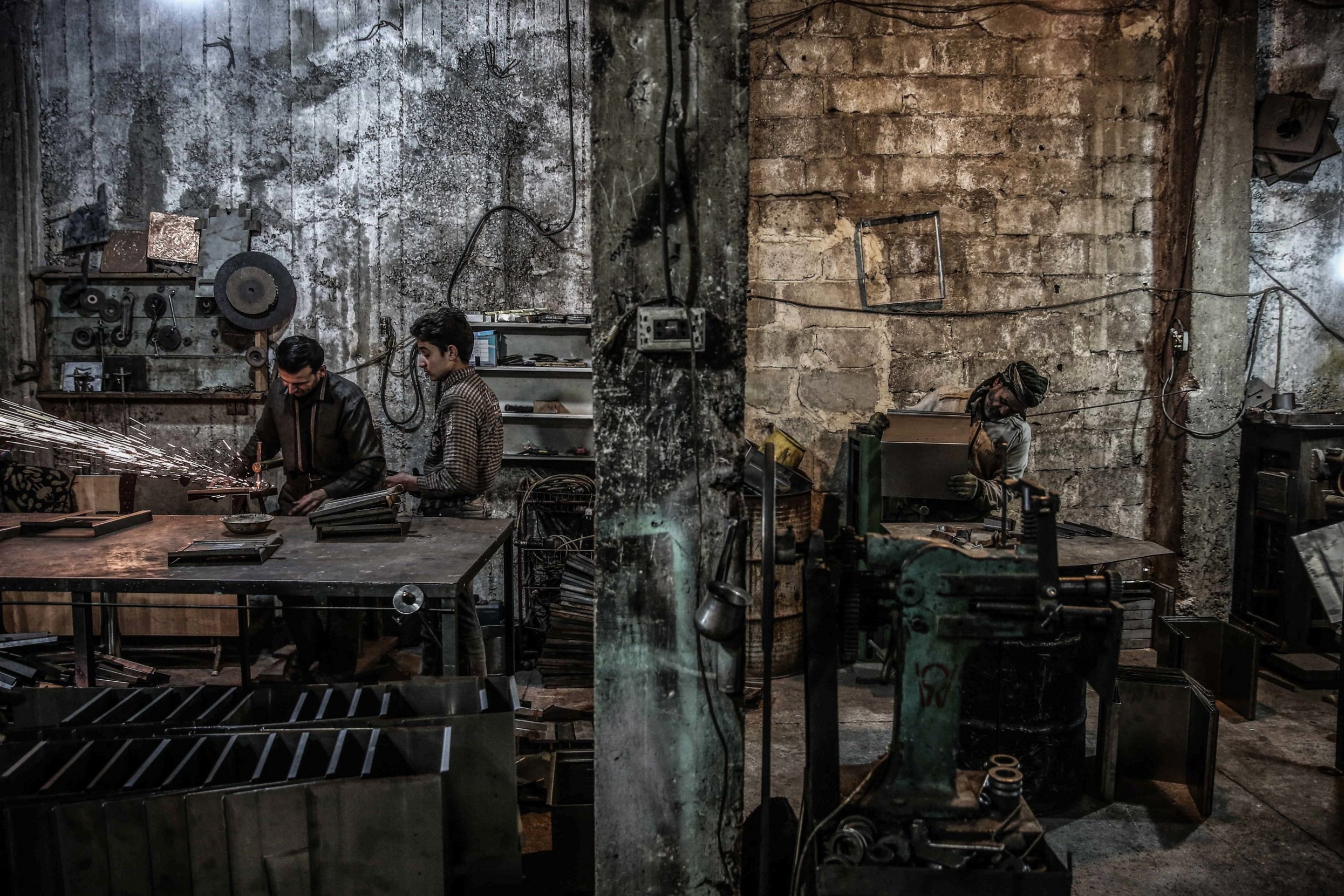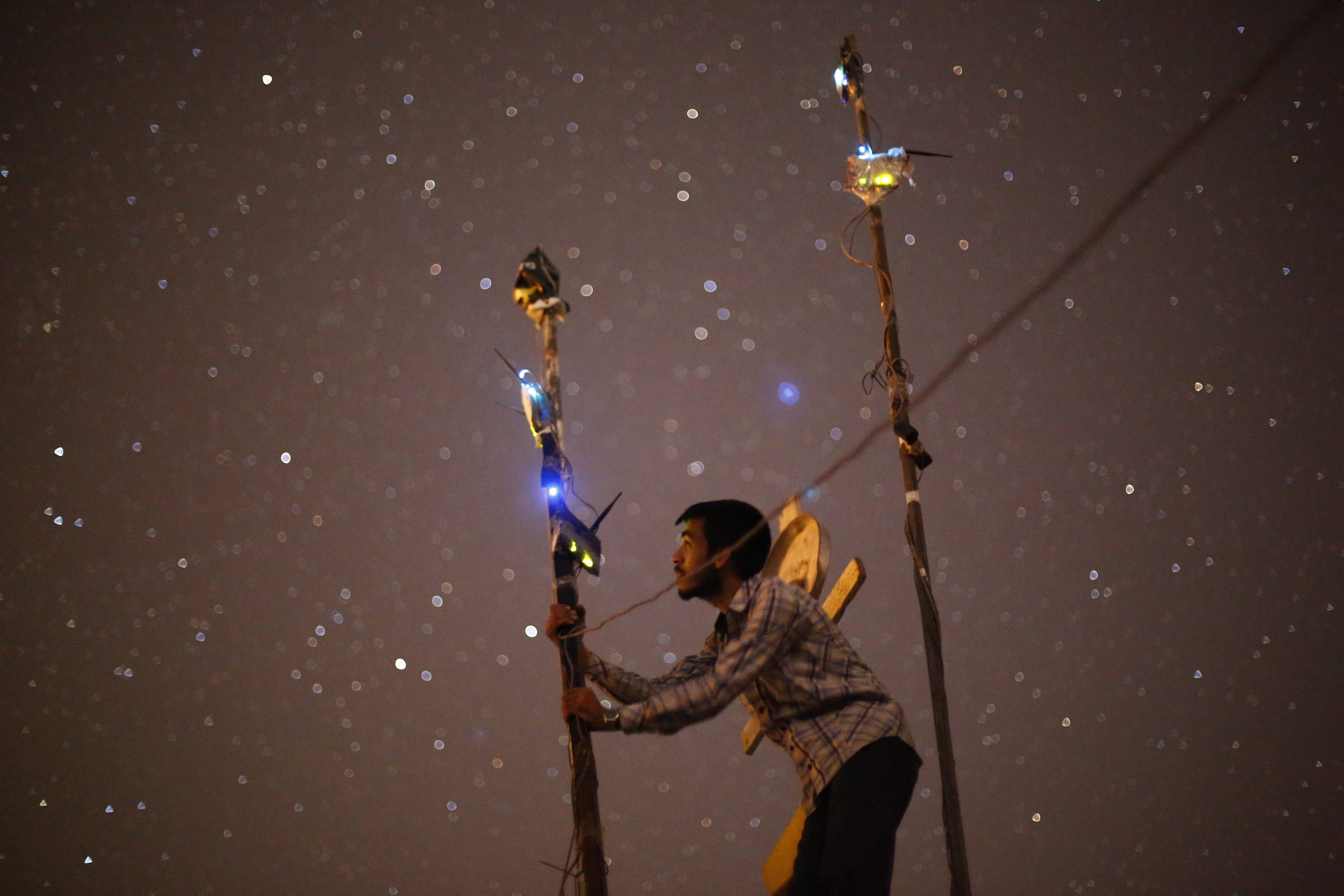Life has a different taste in the besiegement!
The word "siege" takes on a completely different meaning once you have experienced it.
In Eastern Ghouta, life became increasingly daunting and unbearable as the siege tightened. Back in late 2012, the whole area became liberated by opposition fighters, and the government officially lost control.
The Syrian government has imposed a severe siege on the area as a kind of punishment, attempting to regain control over the area by starving and bombing the people there. Primarily, the regime has restricted the movement of civilians, confiscated food, and arbitrarily deprived civilians of electricity and water.
The siege of Eastern Ghouta passed through phases of loosening and restriction for over five years. This ended when the Syrian regime invaded the area after a brutal military campaign earlier in 2018, which was backed by Russian forces and involved heavy shelling.
The most difficult period of the siege began in late 2013, when the Syrian regime and its allies imposed a complete siege on Eastern Ghouta. In August 2013, the regime launched a massive chemical attack on the area. More than 1,400 people were killed, most of them civilians.
In the face of such a brutal campaign and with little experience with such a tight siege, people did not have time to make a plan; they were not well prepared to deal with the situation. Lands had not been farmed, and an adequate amount of food had not been stored. The situation escalated suddenly, and civilians found themselves face to face with the harsh reality that there was no food in the entire area. They thus began to search for alternatives that could help them to survive.
However, after a long period of siege and starvation, people began to devise alternatives in order to cope with the devastating situation.
Unfortunately, there were few items that could serve to replace food. People started using animals' fodder as a surrogate for wheat in order to make bread. It was even a luxury to acquire animals' fodder -- only the wealthy were able to get it, after paying a steep price and waiting in line for hours.
Saccharine was used instead of sugar as some of it was stored. One of the main sources of sugar was a traditional sun-dried apricot paste, known as Kamruddin. The situation was extremely tragic, as children and the elderly began to die of starvation and from acute malnutrition.
They started cutting trees down, to use the wood as a surrogate for fuel, and thus were able to make fires for cooking and heating.
Because of the huge dependency on firewood, they began to produce stoves that were made specifically to work on wood rather than fuel. They started producing fuel and gas from plastic waste materials; however, this process was very expensive, and not very effective.
People were cut off from the outside world due to the siege, thus, the internet was the only solution to connect with their children, relatives and to hear the news about what is going to happen to them. Getting the internet was not an easy mission, people dependent on local internet providers who, in turn, depended on satellite internet. Sometimes people managed to receive signals from cell towers in regime-controlled areas near Ghouta, using the cellular network for internet.
The people of Ghouta have devised many alternatives to mimic the activities and products of daily life, attempting to resist the horrors of war, survive in such a bitter situation, and hope for a better future.
People work at a factory producing wood-burning stoves,
known locally as a "sobia", in the city of Douma.
A man puts the internet Modem at a high altitude in order to try to get some signal from nearby regime areas.




